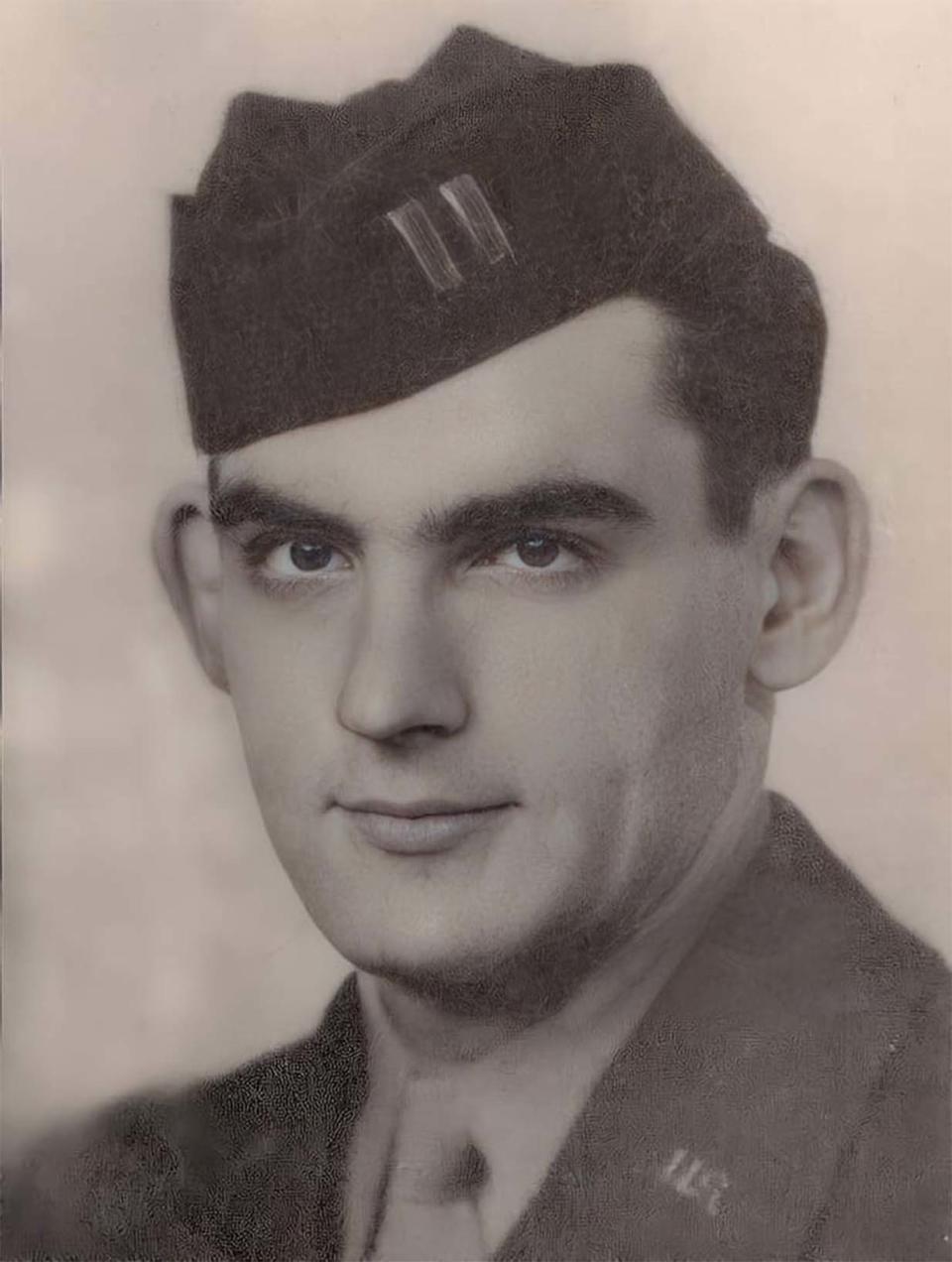Veterans column: Newark's Massa sees full terror of World War II in France
Forty-nine years after his experiences in June of 1944, Paul Massa continued his reminisces. His battalion was making its way for Cherbourg-fighting the Germans for every inch of ground.

“One morning we had tank support and I thought that that was great. The tanks sprayed the trees and the hedgerows with their machine guns and the battalion really began to move. I was about 100 feet behind one of the tanks when suddenly there was an explosion. At first, I thought that the tank’s 75mm gun had fired. The tank stopped, its motor roared like it had slipped out of gear, and then the lid of the turret flew open and the crew scrambled out, all except one man. He was trapped inside and I listened to his screams as he burned to death. After that the other tanks pulled out, otherwise, they would have been sitting ducks for the German gun that got the first tank. The tank burned for several days. After the third day, the engineers brought up a bulldozer to move it. The lieutenant driving the dozer was a friend of mine. The same German 88 that got the tank got the bulldozer and killed the lieutenant.
Once, the first battalion launched a night attack on Hill 90. As I recall, a railroad track was our line of departure at about midnight. The battalion didn’t reach its objective and occupy the top of the hill until after daylight. It turned out to be a very expensive piece of real estate. The Germans laid down barrages with everything they had, mortars, ‘screaming meemies’ and artillery. Colonel Jackson, the battalion commander, and most of his staff were casualties. Many of the Germans on top of the hill were killed or wounded. I walked around the area on top looking at the devastation. There was little shelter and most of the men had been pretty much in the open. Fragments from large-caliber shells mutilated and mangled human bodies. Dead men had huge holes through their bodies and their arms or legs were torn off. One man was in a sitting position with the top of his head neatly removed. The inside of his head was empty as though everything had been scooped out.
I found fear to be a very painful experience. When I say, ‘fear’ I mean the sheer terror that a man experiences when he thinks he's going to die. I prayed a lot in Normandy; I didn’t pray that my life would be saved, because there were times I was sure that I was going to be killed. I prayed that my soul would go to heaven. It was a very terrifying experience to be caught by an artillery barrage. I always hit the ground and made myself as flat as I could. I would have crawled into my field helmet if I could have. I’ve had shells burst so close to me that I felt the heat of the blast. When the shelling would stop, there would be a few seconds of silence and then you would hear the wounded call for an aidman. There were always some wounded. We all had the greatest respect for our medics or aidman as the wounded called them. Each medic had a red cross on a white background on his helmet and a red cross armband. They answered the cry of the wounded even if they had to expose themselves to enemy fire. Unfortunately, I don’t believe that the highly visible red cross protected them, because many of them were killed or wounded.”
By this time, Massa was the only Naval Fire Control Spotter left in his battalion; the others had been wounded or killed. Massa didn’t realize his days in Normandy were almost over.
Doug Stout is the Veterans Project Coordinator for the Licking County Library. You may contact him at 740-349-5571 or dstout@lickingcountylibrary.org. His book "Never Forgotten: The Stories of Licking County Veterans" is available for purchase at the library or online at bookbaby.com & Amazon.com.
This article originally appeared on Newark Advocate: Vet column: Newark's Massa sees full terror of World War II in France

